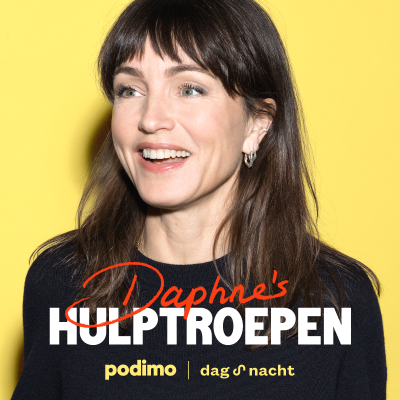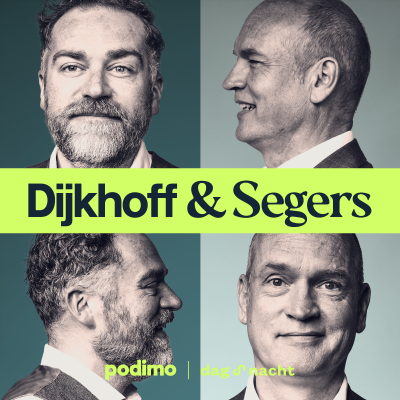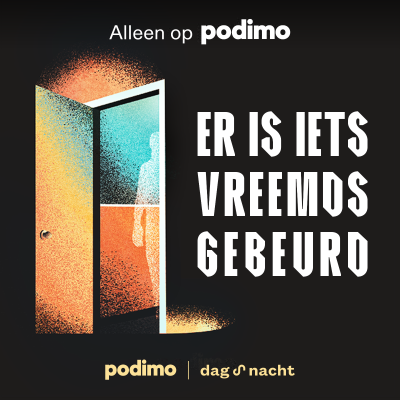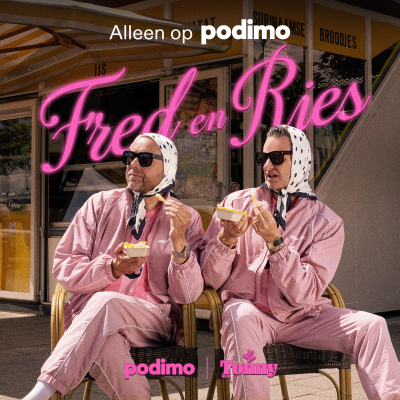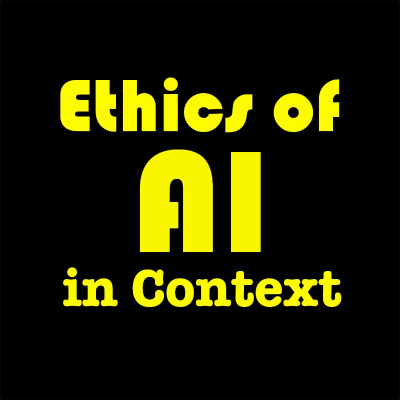
Ethics of AI in Context
Engels
Technologie en Wetenschap
Tijdelijke aanbieding
2 maanden voor € 1
Daarna € 9,99 / maandElk moment opzegbaar.
- 20 uur luisterboeken / maand
- Podcasts die je alleen op Podimo hoort
- Gratis podcasts
Over Ethics of AI in Context
A selection of interviews and talks exploring the normative dimensions of AI and related technologies in individual and public life, brought to you by the interdisciplinary Ethics of AI Lab at the Centre for Ethics, University of Toronto.
Alle afleveringen
61 afleveringenConference: Trust and the Ethics of AI
This workshop aims to address some of the insights that we have gained about the ethics of AI and the concept of trust. We critically explore practical and theoretical issues relating to values and frameworks, engaging with carebots, evaluations of decision support systems, and norms in the private sector. We assess the objects of trust in a democratic setting and discuss how scholars can further shift insights from academia to other sectors. Workshop proceedings will appear in a special symposium issue of C4eJournal.net. Speakers: Judith Simon (University of Hamburg), Can and Should We Trust AI? Vivek Nallur (University College Dublin), Trusting a Carebot: Towards a Framework for Asking the Right Questions Justin B. Biddle (Georgia Institute of Technology), Organizational Perspectives on Trust and Values in AI Sina Fazelpour (Northeastern University), Where Are the Missing Humans? Evaluating AI Decision Support Systems in Content Esther Keymolen (Tilburg University), Trustworthy Tech Companies: Talking the Talk or Walking the Walk? Ori Freiman (University of Toronto), Making Sense of the Conceptual Nonsense “Trustworthy AI”: What’s Next?
Conference: Afrofuturism And The Law
Long before the film Black Panther captured the public’s imagination, the cultural critic Mark Dery had coined the term “Afrofuturism” to describe “speculative fiction that treats African-American themes and addresses African-American concerns in the context of twentieth-century technoculture.” Since then, the term has been applied to speculative creatives as diverse as the pop artist Janelle Monae, the science fiction writer Octavia Butler, and the visual artist Nick Cave. But only recently have thinkers turned to how Afrofuturism might guide, and shape, law. The participants in this workshop explore the many ways Afrofuturism can inform a range of legal issues, and even chart the way to a better future for us all. Introduction: Bennett Capers (Law, Fordham) Panel 1: Ngozi Okidegbe (Law, Cardozo), Of Afrofuturism, Of Algorithms Alex Zamalin (Political Science & African American Studies, Detroit Mercy), Afrofuturism as Reconstitution Panel 2: Rasheedah Phillips (PolicyLink), Race Against Time: Afrofuturism and Our Liberated Housing Futures Etienne C. Toussaint (Law, South Carolina), For Every Rat Killed
Nathan Olmstead, We Are All Ghosts: Sidewalk Toronto
As the fabric of the city becomes increasingly fibreoptic, enthusiasm for the speed and ubiquity of digital infrastructure abounds. From Toronto to Abu Dhabi, new technologies promise the ability to observe, manage, and experience the city in so-called real-time, freeing cities from the spatiotemporal restrictions of the past. In this project, I look at the way this appreciation for the real-time is influencing our understanding of the datafied urban subject. I argue that this dominant discourse locates digital infrastructure within a broader metaphysics of presence, in which instantaneous data promise an unmediated view of both the city and those within it. The result is a levelling of residents along an overarching, linear, and spatialized timeline that sanitizes the temporal and rhythmic diversity of urban spaces. This same levelling effect can be seen in contemporary regulatory frameworks, which focus on the rights or sovereignty of a largely atomized urban subject removed from its spatiotemporal context. A more equitable alternative must therefore consider the temporal diversity, relationality, and inequality implicit within the datafied city, an alternative I begin to ground in Jacques Derrida’s notion of the spectre. This work is conducted through an exploration of Sidewalk Labs pioneering use of term urban data during their foray in Toronto, which highlights the potentiality of alternative, spectral data governance models at the same time it reflects the limitations of existing frameworks. Nathan Olmstead Urban Studies University of Toronto
Kamilah Ebrahim & Erina Moon, Building Algorithms that Work for Everyone
Oftentimes, the development of algorithms are divorced from the environments where they will eventually be deployed. In high stakes contexts, like child welfare services, policymakers and technologists must exercise a high degree of caution in the design and deployment of decisionmaking algorithms or risk further marginalising already vulnerable communities. This talk will seek to explain the status quo of child welfare algorithms, what we miss when we fail to include context in the development of algorithms, and how the addition of qualitative text data can help to make better algorithms. Kamilah Ebrahim iSchool University of Toronto Erina Moon iSchool University of Toronto
Sharon Ferguson, Increasing Diversity In Machine Learning And Artificial Intelligence
Machine Learning and Artificial Intelligence are powering the applications we use, the decisions we make, and the decisions made about us. We have already seen numerous examples of what happens when these algorithms are designed without diversity in mind: facial recognition algorithms, recidivism algorithms, and resume reviewing algorithms all produce non-equitable outcomes. As Machine Learning (ML) and Artificial Intelligence (AI) expand into more areas of our lives, we must take action to promote diversity among those working in this field. A critical step in this work is understanding why some students who choose to study ML/AI later leave the field. In this talk, I will outline the findings from two iterations of survey-based studies that start to build a model of intentional persistence in the field. I will highlight the findings that suggest drivers of the gender gap, review what we’ve learned about persistence through these studies, and share open areas for future work. Sharon Ferguson Industrial Engineering University of Toronto
Kies je abonnement
Tijdelijke aanbieding
Premium
20 uur aan luisterboeken
Podcasts die je alleen op Podimo hoort
Gratis podcasts
Elk moment opzegbaar
2 maanden voor € 1
Daarna € 9,99 / maand
Premium Plus
Onbeperkt luisterboeken
Podcasts die je alleen op Podimo hoort
Gratis podcasts
Elk moment opzegbaar
Probeer 30 dagen gratis
Daarna € 11,99 / maand
2 maanden voor € 1. Daarna € 9,99 / maand. Elk moment opzegbaar.

